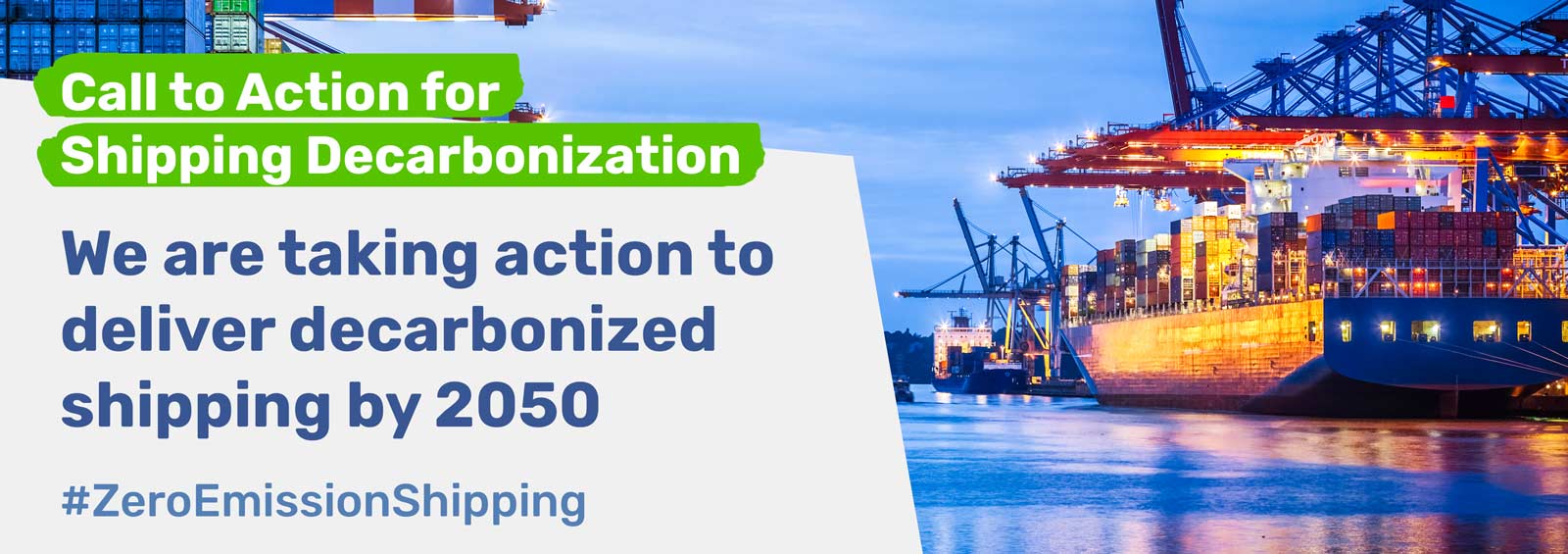
Ultranav joins the Call to Action for Shipping Decarbonisation in urging world leaders to align shipping with the Paris Agreement temperature goal. The private sector is already taking important steps to decarbonise global supply chains. Now, governments must deliver the policies that will supercharge the transition and make zero emission shipping the default choice by 2030.
Full decarbonization of international shipping is urgent and achievable. This is the clear message from more than 150 industry leaders and organisations representing the entire maritime value chain, including shipping, cargo, energy, finance, ports, and infrastructure. In conjunction with the UN General Assembly and ahead of critical climate negotiations at COP26 in Glasgow this November, we call on governments to work together with industry to deliver the policies and investments needed to reach critical tipping points in decarbonising global supply chains and the global economy.
Signatories to the Call to Action for Shipping Decarbonisation include some of the world’s largest actors in global trade: A.P. Moller – Maersk, BHP, BP, BW LPG, Cargill, Carnival Corporation, Citi, Daewoo Shipbuilding & Marine Engineering, Euronav, GasLog, Hapag-Lloyd, Lloyd’s Register, Mitsui O.S.K. Lines, MSC Mediterranean Shipping Company, Olympic Shipping and Management, Panama Canal Authority, Port of Rotterdam, Rio Tinto, Shell, Trafigura, Ultranav, Volvo, and Yara.
Ships transport around 80% of global trade and account for about 3% of global greenhouse gas (GHG) emissions. In 2018, the UN’s International Maritime Organisation (IMO) adopted an initial GHG strategy. It aims to reduce international shipping’s total annual GHG emissions by at least 50% of 2008 levels by 2050. The strategy is set to be revised in 2023.
“For us at Ultranav, contributing actively with concrete steps aimed at achieving a transition to zero emissions in the shipping industry is a significant part of our decarbonization strategy. However, our goals will only be reached in an environment of cross-sector collaboration in which governments and international regulators need to provide an adequate policy framework. That is why we support the Call to Action.” Jan Vermeij, CEO at Ultranav.
Ultranav is committed to playing an active role in exceeding IMO’s mandatory targets of reducing CO2 intensity by at least 40% until 2030 and total GHG emissions by 50% until 2050. By 2022, Ultranav will define a pathway aiming to achieve a neutral carbon footprint in its land-based operations and administration.
- By 2030, Ultranav is committed to reducing the carbon intensity of the operated fleet preferably by 50%, but at least by 40% compared to 2008.
- Ultranav will drive initiatives with the objective of predominantly deploying zero emission vessels in domestic trades by 2045.
- By 2050, Ultranav is committed to deploy a zero emission fleet in international commercial operations.
Read more about the Call to Action for Shipping Decarbonisation